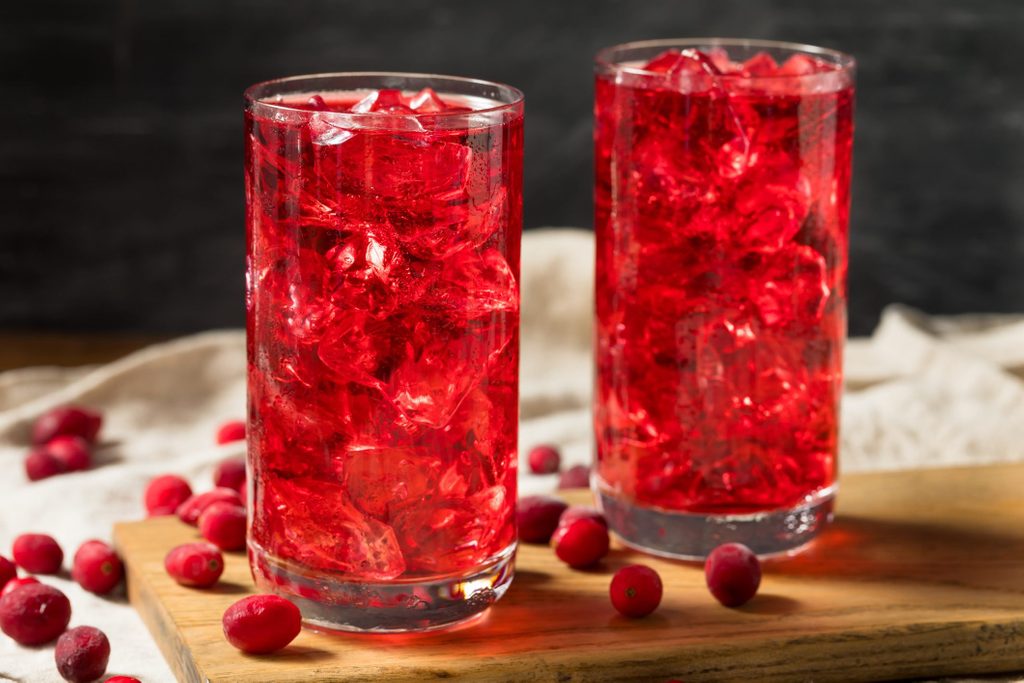Does Cranberry Juice Help Yeast Infections?

You may have heard cranberry juice may help a yeast infection, but is this true? Two ob-gyns weigh in and discuss when to see your doctor.
If you have a yeast infection, the burning and pain, plus the discomfort of thick discharge, is unpleasant to deal with—to say the least. They’re also so common that most women will get at least one in their lifetime. One in 20 women get recurrent yeast infections, which are defined as having four or more infections in a year.
For those women, constantly dealing with a cycle of yeast infection symptoms may have them trying to find relief from natural sources, such as drinking cranberry juice (which is better known as a home remedy for urinary tract infections).
But before we answer the question does cranberry juice help yeast infections, it’s important to understand what a yeast infection is, the symptoms, and when to see a doctor.
(Related: Everything You Need to Know About Vaginal Discharge)
What is a yeast infection?
Candida is a yeast, a type of fungus, that normally lives in the vagina (and on the skin). An overgrowth of Candida can cause a yeast infection.
An infection can trigger some seriously bothersome symptoms, including out-of-control itching, pain during sex, discomfort when urinating, and abnormal vaginal discharge.
Luckily, they can be readily treated with antifungal medicine that goes inside the vagina or taken as one dose of an oral drug. Some antifungal treatments are available with a prescription and others are sold over-the-counter as vaginal creams or suppositories.
(Related: 22 Myths Gynecologists Want You to Ignore)
What to do if you have a yeast infection
If you think you have a yeast infection, it’s a good idea to consult a doctor before trying to self-treat with over-the-counter medication or home remedies.
Yeast infections can share similar symptoms with sexually transmitted infections (STIs) and bacterial vaginosis, so talk to your doctor first to see what you have. Vaginitis is an inflammation or irritation that can be caused by yeast infections or bacterial vaginosis, which is caused by bacterial overgrowth.
For recurrent yeast infections that cause vaginal soreness throughout the year, Kecia Gaither, MD, double board-certified in ob-gyn and maternal fetal medicine, and director of perinatal services at NYC Health + Hospitals/Lincoln, recommends seeing your doctor—even if you assume you know how to treat them properly.
“It’s best to determine if there’s an underlying medical issue, specifically one that decreases immune function, such as diabetes or human immunodeficiency virus (HIV), that can contribute to an increased risk of recurrent yeast infection,” she says.
So, if you get a yeast infection and you’re looking for an alternative, non-medicinal treatment, can cranberry juice help? Here’s what the science says.
Cranberry juice nutrition facts
Fresh cranberries are loaded with nutrients like fibre, potassium, and key vitamins. Cranberry juice, however, is not the same when it comes to nutrients. It’s important to look for cranberry juice that says 100 percent juice on the label. There are other varieties labeled “cranberry juice cocktail” that are packed with sugar and tend to have less real cranberry.
Here are the nutrition facts for one cup (249 g) of 100 percent cranberry juice:
- Calories: 114
- Protein: 1 g (2 percent Daily Value)
- Fat: 0.3 g
- Carbohydrate: 30 g (11 percent DV)
- Fibre: 0.2 g (1 percent DV)
- Sugars: 30 g
(Related: Is Cranberry Juice Good for Your Kidneys?)
Does cranberry juice help yeast infections?
There’s good research to suggest that for people who get recurrent urinary tract infections (UTIs), drinking cranberry juice may decrease the risk of getting another infection. However, a UTI is not the same as a yeast infection, and there is no scientific evidence that cranberry juice is a valid way to treat or prevent them.
“Urinary tract infections are caused by bacteria, while yeast infections are caused by a fungus,” says Dr. Gaither.
While there is at least one study, published in Pathogens and Disease, that suggested that cranberry extracts and juice in vitro (a test tube) might have promise in reducing oral Candida, it’s too big of a leap to suggest that cranberry juice would help vaginal yeast infections.
Possible risks of drinking cranberry juice for yeast infections
There is older research published in the American Journal of Obstetrics and Gynecology that suggests women with recurrent yeast infections who drink cranberry juice are more likely to have yeast infections.
Of course, that doesn’t mean the juice necessarily caused them—women could have been drinking it in hopes of preventing future itching.
However, the authors note, some types of cranberry juice contain a lot of added sugar (these are often juice blends or cranberry juice cocktail), which actually drives yeast growth.
(Related: You Think You Might Have A Yeast Infection – Now What?!)
Natural remedies to prevent yeast infections
While eating fresh cranberries or dried cranberries may offer certain health perks, “I’m not aware of much data showing that cranberry decreases the risk for yeast infections,” says Mary Jane Minkin, MD, an ob-gyn and clinical professor of obstetrics and gynecology at the Yale School of Medicine.
When it comes to vaginal yeast infections, “the best reliable recommendation is to decrease sugar intake,” she says.
Another option is to try a probiotic supplement, either in the form of eating yogurt or taking an Acidophilus supplement, which contains the “good” bacteria Lactobacilli, Dr. Gaither says. “Lactobacilli are good at keeping yeast and certain bacteria in check, preventing overgrowth that causes infections,” she explains.
The last word
Overall, our experts and science do not support the use of cranberry juice to treat yeast infections. Any claims regarding its potential to treat them are unsubstantiated.
If you have a mild yeast infection, it may go away without treatment, but if you’re unsure of where these symptoms are coming from, it’s best to consult your doctor for next steps.
Next: 11 Foods That Have Extra Healing Power When You Need It




